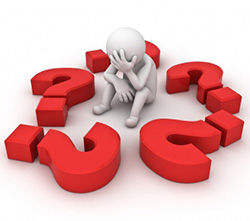“The reason for this post was to give myself some idea of what “Sudden Infant Death Syndrome” is and does, before posting about the sudden death of a work colleague.”
Sudden Infant Death Syndrome (SIDS), also known as cot death, is the unexplained death of an apparently healthy baby. While it is a rare occurrence, with around 200 cases reported in England annually, it is a significant concern for new parents and healthcare professionals.
While it is a rare occurrence, in 2021, the rate of sudden infant deaths rose from 0.13 deaths per 1,000 live births to 0.17 deaths per 1,000 live births, while the rate of unascertained infant deaths fell from 0.13 deaths per 1,000 live births to 0.09 deaths per 1,000 live births. Information Office for National Statistics.
SIDS primarily affects infants in their first year of life, with premature and low birth weight babies at a higher risk. Baby boys also have a slightly higher risk compared to baby girls. The exact causes of SIDS are not well understood, experts believe it may be a combination of various behavioral risk factors that converge during a critical stage of the infant’s development. Environmental factors and certain health conditions, such as preterm and low birth weight, can increase the risk.
Most SIDS cases occur during nighttime sleep, although it can happen during daytime sleep as well. There have been instances where apparently healthy adults suddenly and unexpectedly die, with minimal or no abnormalities found during post-mortem examinations. A recent study estimated that in England, at least 150 out of approximately 3,500 adult deaths had no identifiable cause. To help prevent SIDS, the National Health Service (N.H.S) provides guidelines for mothers to follow.

If you are a new mum or thinking of having a baby I would recommend Mom Loves Best it covers a vast amount of information from getting pregnant through health to baby food navigated by an Info-graphic. Learn more about the importance of baby sleep safety at Mom Loves Best.
Adult Death Syndrome
In a different context, sudden deaths in healthy adults that appear to have no cause share similar symptoms with SIDS. There have been instances where apparently healthy adults suddenly and unexpectedly die, with minimal or no abnormalities found during post-mortem examinations. A recent study estimated that in England, at least 150 out of approximately 3,500 adult deaths had no identifiable cause.
Dr. Tim Bowker, Associate Medical Director at the British Heart Foundation, who is leading the research, said.
“It has long been recognized that there are occasions when an apparently previously healthy adult dies suddenly and unexpectedly and any abnormalities found at postmortem are minimal or non-existent.”
Dr. Tim Bowker. Associate Medical Director at the British Heart Foundation.
The Reason For This Post
The reason I brought up SIDS in relation to sudden deaths in healthy adults is because I heard about a 40-year-old work colleague who died in his sleep without any apparent explanation. The post-mortem examination conducted at the time failed to determine the cause of his death. This situation must have been extremely challenging for his family, as they not only experienced the loss of their son but also the frustration of not knowing why he passed away.

This incident deeply affected me and reminded me of a time when we worked together. Apart from occasional disagreements, I remember him as a generally healthy individual who rarely took time off work due to illness.
His sudden death and the mystery surrounding it prompted me to reflect on the connection between unexplained deaths in apparently healthy adults and SIDS.
Difficult Person To Work With
During periods when he was moody and held grudges, which could last for several days, he would behave oddly and say things that made life difficult for those who disagreed with him. Reflecting many years later (hindsight) his behavior almost seemed paranoid, suggesting the possibility of mental health issues such as depression, phobias, or paranoid personality disorder.
At the time, I speak of I often wondered if he was going through a family crisis and it was affecting his work life. Now many years later looking back, I now believe he may have been experiencing a mental health problem.
Not A Physical Problem
In those days, admitting to a mental health problem was not as accepted as acknowledging a physical ailment, like a broken arm. Even today 2024, some individuals prefer to keep mental health problems hidden and not discuss them openly.
With the study conducted in 2014, focused on sudden adult deaths where no identifiable cause of death was found. This made me contemplate whether some of these deaths could be a form of self-harm, occurring while the individuals were asleep.
Back then, nobody wanted to admit to their friends or anyone else that they were going through a psychotic episode—a term used to describe mental health disorders that impair clear thinking, recognition of reality, and rational behaviour.
What if we consider Joe Bloggs, as we’ll call him, being so deeply depressed that he interpreted any criticism of his work ideas as a personal attack, rather than an attempt to improve productivity? If this was his mindset, things would likely have worsened without medical intervention, leading to an unhealthy state of mind.
Taking It Personally
Now, the challenge lies in expressing my thoughts clearly without sounding ignorant (though I may very well be… oh well). This is my interpretation of what could be happening when a seemingly healthy adult dies in their sleep without an apparent cause.

At some point in our lives, we all experience suspicious or irrational thoughts that turn out to be unfounded. What if Joe Bloggs reached a state of mind where he perceived every conversation as a threat against him personally?
Could this have led him to believe that people around him were conspiring against him, with his work colleagues and friends using him as a scapegoat? Perhaps he started thinking that everyone was spreading rumours about him, bullying him into accepting their ideas, or making hurtful comments with the intention of causing harm. In his distorted perspective, he might have even believed his life was in danger.
My Thoughts About My Colleague
Now, let’s imagine that one night, while going to bed, Joe had reached a low point. He saw himself as having no purpose left in life, and in his mind, it would be their fault (not his) if he never woke up again. That would teach them a lesson they would never forget-the consequences of what they had done to him.
If that was his state of mind, could he have given up on life while asleep? Using sleep as an easier means to end his life, as he wouldn’t be conscious of not waking up the next morning. And in his distorted perspective, it would be entirely their fault. Whoever “they” were.
If Joe Bloggs died in this scenario, would a post-mortem examination reveal any evidence that he had chosen to end his life while asleep? Considering that he successfully hid his mental state from others, we are dealing with a mental health issue where there would be no significant physical evidence. It would likely appear as if he had simply died in his sleep.
Header Image by Benjamin Balazs from Pixabay
In post Peggy und Marco Lachmann-Anke from Pixabay
Note:
“Apologies for the lengthy post. These were thoughts swirling around in my mind. Thanks for your visit” (Shahd 2024).